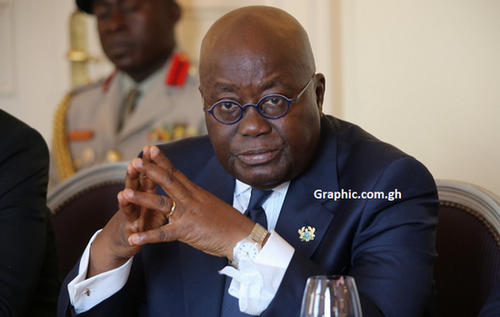
Ghana to include senior secondary school in basic education category
President Akufo-Addo has announced the planned re-categorisation of Senior High School education as part of basic education in Ghana.
President Akufo-Addo made the declaration, along with wide-ranging reforms in the education sector on Thursday before Parliament while he presented the 2019 State of the Nation Address, his third since assuming the presidency in January 2017.
Currently, basic education begins from Primary One and tapers off at the Junior High School level, whose graduates write the Basic Education Certificate Examination (BECE).
The President said poverty is no longer an excuse for any child not go to school and
The President said Ghanaians have no choice but to provide their young people with quality education and lifelong learning opportunities, saying “it is the only way to ensure prosperity, and to protect our democracy.”
Nana Addo assured that no effort would be spared “to make education in Ghana of the best quality, and fit for the needs of the 21st century.”
“In September 2019, a new standards-based curriculum will be rolled out from kindergarten to Class 6 in primary schools. This curriculum has drawn upon the best practices from all over the world, and will focus on making Ghanaian children confident, innovative, creative-thinking, digitally-literate, well-rounded, patriotic citizens. Mathematics, Science, Reading, Writing and Creativity are, therefore, at the heart of this new curriculum.
“Mr Speaker, poverty should not be an excuse for any Ghanaian child not to reach their full potential. It, therefore, warms my heart that we are now able to say that education in the public sector is free from Kindergarten to Senior High School, and, that this year, legislation would be passed to redefine basic education to include Senior High School.
“Young people have to have options on which career path they choose, and I am glad to announce that all is set for the construction of 10 state-of-the-art Technical and Vocational Education Training (TVET) Centres this year. For far too long, we have preached about the importance of TVET without doing very much to demonstrate this importance. We send or urge young people to go to poorly equipped TVET centres, and we are surprised that they are not keen. The new TVET centres would be world class, and attractive to assure young people that they are not being sent to second best options.
“We are also bent on demystifying science, mathematics and technology. Ten Science, Technology, Engineering and Mathematics (STEM) centres are being built around the country to provide support for the introduction of STEM into basic education after the completion of a successful pilot phase. We can be sure, therefore, that Ghana’s young people will be able to acquire skills that would put them at par with their peers anywhere in the world. The importance of science, technology and innovation has led me to appoint a Presidential Advisory Council on Science, Technology and Innovation (PACSTI) to advise the President on how to infuse the application of science and technology in the development of our nation, headed by a distinguished scientist, Prof. Edward Ayensu.
“Mr Speaker, we shall bring before Parliament this year, a tertiary education policy Bill that will bring all the public universities under a common law, and make the administration of the public universities less cumbersome.”
